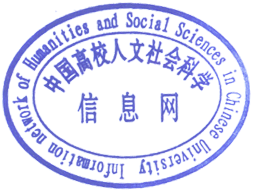关 键 词 :人类命运共同体;外交政策;国际话语权学科分类:马克思主义--马克思主义其他学科
海外学者对于人类命运共同体的研究,目前主要集中在提出人类命运共同体的现实依据、基本内涵、实践路径这三个方面。对于人类命运共同体的实践路径从构建主体和构建路径两大方面进行了探讨。随着人类命运共同体理念影响力日益扩大,以及实践不断深化,海外学者对于人类命运共同体的倡议持有支持、观望、反对三种不同的态度,态度各异的原因主要是对人类命运共同体在理解上存在认识片面、认知错误等偏差。我们梳理海外学者对于人类命运共同体的研究成果和相关观点,有利于我们更进一步的总结和反思,让更多国家认同并主动携手共建,使人类命运共同体真正的惠及各国人民。
At present, the research of overseas scholars on the community of human destiny mainly focuses on three aspects: the practical basis, basic connotation and practical path of the community of human destiny. The practical path of a community with a shared future for mankind is discussed from two aspects: the construction of the main body and the construction path. With the expanding influence of the concept of a community with a shared future for mankind and the deepening of practice, overseas scholars have three different attitudes towards the initiative of a community with a shared future for mankind: support, wait and see, and oppose, mainly because of the bias in understanding the community of human destiny, such as one-sided understanding and cognitive errors. We sort out the research results and relevant views of overseas scholars on the community of human destiny, which is conducive to our further summary and reflection, so that more countries can recognize and take the initiative to work together to build it, so that the community of human destiny can truly benefit the people of all countries.

